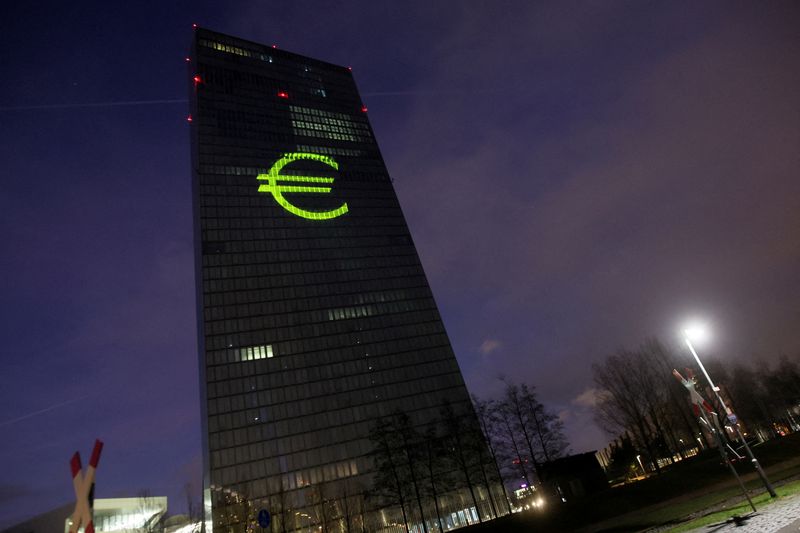(Bloomberg) -- Sign up for the New Economy Daily newsletter, follow us @economics and subscribe to our podcast.
The European Central Bank may raise interest rates as soon as July amid “significant” inflation risks that will probably require further tightening later in the year, according to Governing Council member Martins Kazaks.
He said he wouldn’t challenge trader bets that the ECB’s deposit rate -- currently at a record-low -0.5% -- will increase to zero this year. There’s also no need for the rate to linger at this “magical number” for longer than necessary.
“A rate increase in July is possible, and I have no reason to disagree with what markets are pricing for the second half of the year,” Kazaks, who heads Latvia’s central bank, said in a Bloomberg interview. “We are on a solid path of policy normalization” where “we step-by-step gradually get to zero and then above.”
With euro-area inflation at a record 7.5% and rising, policy makers are pressing ahead with unwinding monetary stimulus this year. Money markets are betting on more than a 50% chance of a quarter-point rate hike by July, with 25 basis points of tightening baked in for September and December.
Still, the economic fallout from the war in Ukraine means policy makers are moving cautiously. Central banks in the U.S. and the U.K. are further ahead in removing crisis-era stimulus, which has exposed the ECB to criticism that it’s underestimating the inflation risks.
“Gradual doesn’t mean slow,” said Kazaks, who tends to have hawkish policy views. “It doesn’t mean being consciously behind the curve. No, it just means checking if taken policy measures are appropriate.”
Kazaks said that rate increases of 25 basis points “seem appropriate” for now, though policy makers can always discuss larger moves depending on the economic data. Current inflation readings mean the ECB shouldn’t wait for faster wage growth, and even a significant slowdown in price pressures or the economy would only delay, not derail, policy normalization, he said.
Policy makers have been adamant that one precondition for raising rates for the first time in more than a decade is halting a 2015 bond-buying tool. That decision is on the agenda for their June 8-9 meeting.
“We haven’t seen any major elements of stress in financial markets, which makes me think that ending QE early in the third quarter is possible and appropriate,” Kazaks said. “Whether it could already happen at the end of June, we’ll have to discuss when we get new forecasts.”
Bloomberg reported earlier this month that ECB staff is working on a backstop to use against debt-market stress. But Kazaks argued that there’s currently no need for new tools to ensure monetary policy reaches all parts of the 19-nation region.
“As far as I’m concerned, it’s sufficient to say ‘We will do what’s our task and we will deliver’,” he said. “We’ve done it before and we’ll do it again if needed.”
On the risks to the economic outlook, he pointed to remaining pandemic disruptions, supply chains and the war in Ukraine. He also said the economy is probably closer to the “adverse scenario” the ECB published in March, which foresees weaker growth and faster inflation this year, and the risk of a technical recession is “non-trivial.”
Like many of its European peers, the former Soviet republic is trying to speed up efforts to wean itself off Russian gas. Kazaks said the region would benefit from a joint fund -- similar to the one created in response to the pandemic -- to help energy independence and investment in renewables.
“Sanctions on Russia are a necessary condition but for them to be efficient we ourselves need to change the ways we behave,” he said. “The challenge for Europe is to be able to switch away from Russian energy sources before Russia finds new ways to supply to other buyers.”
©2022 Bloomberg L.P.
